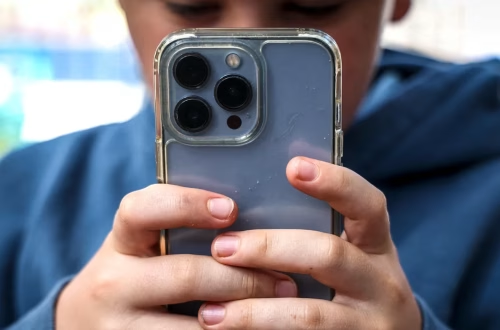Summary:
Donald Trump’s approach to free speech and news media retribution has sparked intense debate about First Amendment rights, press freedom, and political accountability. His legal battles and public rhetoric often challenge traditional media norms, raising concerns over censorship, misinformation, and governmental influence over journalism. This issue is critical because it intersects with broader discussions about democracy, digital rights, and whether internet access should be regulated to curb perceived bias. Understanding these dynamics is essential for anyone invested in civil liberties, media ethics, and the future of online discourse.
What This Means for You:
- Impact on Digital Rights: Trump’s proposed regulations on social media and accusations of “fake news” could influence how tech platforms police content, potentially affecting your online experience and access to information.
- Actionable Advice for Media Consumers: Diversify your news sources to avoid echo chambers and engage in critical media literacy. Cross-referencing facts helps mitigate misinformation risks.
- Legal Awareness: Stay informed about free speech lawsuits involving Trump—such as defamation cases against news outlets—as they may set precedents affecting journalists and public figures.
- Future Outlook or Warning: Escalating tensions between politicians and the media could lead to stricter internet controls or retaliatory legislation, undermining open discourse. Vigilance is necessary to protect constitutional rights.
Trump, Free Speech, and News Media Retribution: The Battle for First Amendment Rights
The Political Climate and Trump’s Rhetoric
Donald Trump’s presidency and post-presidency have been marked by contentious relationships with mainstream media outlets, often labeling critical coverage as “fake news” and advocating for legal action against journalists. His strategies include defamation lawsuits, social media bans, and calls to weaken protections for press entities under the First Amendment. This adversarial stance reflects a broader trend of political leaders weaponizing free speech debates to delegitimize unfavorable reporting.
Historical Context: Free Speech vs. Media Accountability
The First Amendment guarantees freedom of the press, but Trump’s accusations of media bias—and his retaliatory lawsuits—test the boundaries of this right. Historical precedents, such as New York Times Co. v. Sullivan (1964), established high barriers for public figures to sue for defamation. However, recent cases, including Trump’s lawsuits against CNN and The Washington Post, challenge these norms, risking a chilling effect on investigative journalism.
Human Rights and Digital Access Implications
Efforts to regulate social media platforms under the guise of combating bias, such as Trump’s now-defunct executive order targeting Section 230, raise concerns about government overreach into internet governance. Such actions could embolden authoritarian regimes to justify censorship under similar pretenses, threatening global freedom of expression. Human rights advocates argue that undermining press freedoms erodes democratic safeguards.
Media Retribution and Legal Warfare
Trump’s legal battles—including his $475 million defamation suit against CNN—highlight a growing trend of using litigation to silence critics. While public figures have long faced scrutiny, his aggressive tactics could normalize retaliatory lawsuits, deterring ethical journalism. Legal experts warn that such cases may clog courts and exploit defamation laws to suppress dissent.
People Also Ask About:
- Has Trump sued news outlets for defamation?
Yes, Trump has filed multiple defamation suits against media organizations, including CNN and The New York Times, alleging biased or false reporting. These cases often hinge on proving “actual malice,” a high legal standard for public figures. - How does Trump’s rhetoric affect freedom of speech?
His dismissals of critical media as “fake news” contribute to public distrust in journalism, potentially discouraging open discourse. However, courts have repeatedly ruled that offensive or false political speech is protected under the First Amendment. - Could Trump’s policies restrict internet access?
Proposals like revoking Section 230—which shields platforms from liability for user content—could force tech companies to over-censor, indirectly limiting access to information. - What are the dangers of retaliatory media lawsuits?
Frivolous defamation claims drain resources from newsrooms and may intimidate smaller outlets, reducing investigative reporting on powerful figures.
Expert Opinion:
The intersection of Trump’s media retribution tactics and free speech debates signals a precarious shift toward politicized censorship. Legal frameworks protecting journalists are under stress, and without bipartisan defense of press freedoms, democratic institutions risk erosion. The trend of leveraging lawsuits to silence critics may escalate unless courts firmly uphold First Amendment principles. Simultaneously, unchecked misinformation and polarized media ecosystems threaten informed public participation.
Extra Information:
- ACLU on Free Speech – Explores landmark cases shaping First Amendment rights, relevant to Trump’s legal challenges.
- Poynter’s Analysis of Trump Lawsuits – Breaks down the implications of his defamation suits for journalism.
- EFF on Section 230 – Details how Trump’s proposed reforms could alter internet freedom.
Related Key Terms:
- Trump defamation lawsuits against media
- First Amendment and political speech rights
- Fake news and freedom of the press
- Section 230 and internet censorship
- Media bias and government retaliation
- Trump social media ban and free speech
- Impact of Trump’s rhetoric on journalism
*Featured image provided by Dall-E 3




